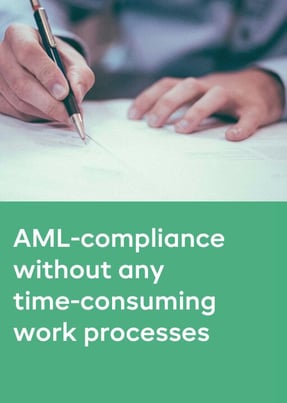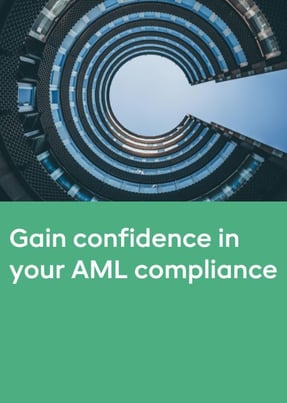- Products
- RegLab for ...
- Knowledge centre
Download the AML glossary >
 Discover the essential AML compliance terminology and gain instant access to a comprehensive guide
Discover the essential AML compliance terminology and gain instant access to a comprehensive guide - The company
Working at RegLab >
Join RegLab as the new Product Owner of our software tool and change the way the legal community approaches anti-money laundering.
There may not be any vacancies that perfectly match your profile, but that does not mean there is no room for someone who can improve RegLab.
- Book a demo
What does KYC mean?
Every organisation subject to the AML Act – such as banks, insurers, accountants, lawyers, notaries, and tax advisors – must screen clients before they can be accepted. On this page you will find the meaning of KYC, what the procedure entails, and the role of Customer Due Diligence (CDD).
The meaning of KYC
KYC stands for Know Your Customer. It is a mandatory process for financial and legal institutions to screen clients before providing services. The goal is to prevent money laundering, fraud, and terrorist financing.
What does a KYC procedure look like?
A KYC process consists of background checks and identity verification of the customer. The following are checked:
- The authenticity of identity documents, such as a passport or ID card
- The origin of funds or assets
- Potential risks associated with the customer
- This verification can be done manually, but it is increasingly being carried out automatically using online tools and databases. This is faster, more accurate and more secure
Mandatory KYC policy according to legislation
The AML Act and EU regulations provide clear guidelines. Banks, accountants, lawyers, notaries, tax and financial advisors, and insurers must screen all (potential) clients. Suspicious activity must be reported. In the Netherlands, this is reported to the FIU.
Difference between KYC and Customer Due Diligence (CDD)
Although the terms KYC and Customer Due Diligence (CDD) are often used interchangeably, there is a difference between them:
- KYC focuses on identifying the customer before the start of the collaboration.
- CDD goes further: it is an ongoing process in which customers are continuously screened, for example via sanctions lists and PEP checks.
Both are part of a broader AML check.
RegLab for KYC
Do you also spend a lot of time on a Know Your Customer and Customer Due Diligence policy to comply with AML requirements? Despite the frustrations they may generate, the KYC principles are becoming increasingly important. RegLab helps firms quickly, safely and easily comply with Know your Customer policy laws and regulations.
Themed file: fully prepared for the supervisor’s audit
This article is part of a number of articles and downloads that will help you prepare yourself for the supervisor’s visit. This content is based on a supervisor's FAQs during an audit. Do you want to be 100% AML-proof and ready for the supervisor’s visit? Find all FAQs in our Knowledge Centre.
Knowledge centre
Download the AML glossary
Gain instant access to the AML glossary and essential compliance terminology.





